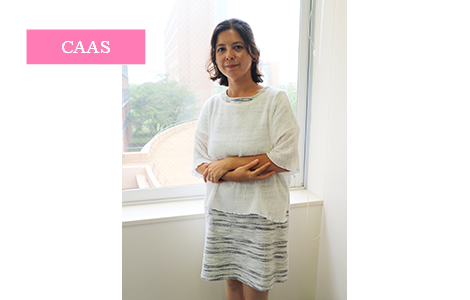Isabelle Konuma

- 役職/
Position - Former Visiting Professor (INALCO)
- 研究分野/
Field - Jurisprudence
Q1. Tell me about your research briefly.
A1. I'm currently working on three research themes. The first is an analysis of the link between eugenics and law in Japanese society, and this is the subject of a draft publication in French. The final chapter will focus on court action over forced sterilizations, the relationship between human rights and eugenics requires careful analysis. The second project focuses on criminal law before the Meiji period and the influence of Chinese law on legal processes. And finally, I have recently become interested in the issue of migration and the status of foreigners in relation to human rights (statelessness, refugees).
Q2. In TUFS what are your lecture?
A2. My lectures are TUFS focus on "Eugenics and law in Japanese society". Eugenics can be approached in many different ways, mine is to analyze its impact on the establishment of legal standards (in criminal, civil, and constitutional law), in relation to evolutionism, natural law, birth control, feminism, and more. From parliamentary notes, the writings of legal experts and legal provisions, we can see that some legal experts do not see that it is incompatible or even contradictory that eugenics is strengthened alongside human rights. This awareness is important to better understand recent lawsuits.
Q3. Japan studies in TUFS have issued a policy to lay emphasis on the reinforcement of the Japan's ability to deliver a message to the world. What do you think is necessary for that?
A3. When we present Japanese society and law in France, it's important to depart from the commonly-held view of Japan as a strange, distant archipelago. The comparison with French law makes it easier to distance ourselves from the system in which we live. The first step for TUFS students could perhaps be to successfully put Japan into perspective and become aware that the entire society in which we live is partly the result of social projects. Foreign researchers may enable them to see aspects of Japanese society that have not previously been obvious to them.
Q4. How about TUFS and students?
A4. TUFS students specialize in various fields and through different languages and cultures. Paradoxically, the common thread between them may be "Japan": they are ready to redefine this country in relation to other countries. I very much hope that they will become an indispensable cultural bridge between nations.
Q5. Compared with overseas, what is good in Japan and not good in Japan?
A5. The first positive things about Japan that spring to mind are good hygiene, efficiency, and a good living environment. When we study pre-war and post-war Japanese society, we come to understand that these different features have been the subject of political campaigns to improve everyday life. The current birth rate can be explained by various factors but birth control and family planning in the post-war period are paramount. When consensus is achieved, Japan shows a great capacity to "improve" society at an incredible speed. However, once this consensus has been internalized and transformed into a unique value, it becomes very difficult to distance oneself from it.




